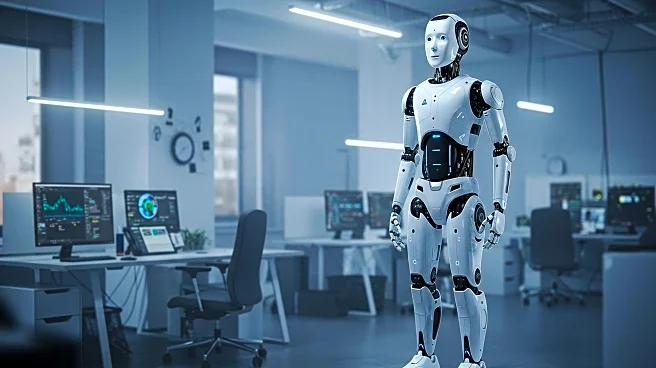What's Happening?
Amazon Web Services (AWS) CEO Matt Garman has publicly criticized the notion of replacing junior employees with artificial intelligence (AI), describing it as 'the dumbest thing I've ever heard.' In a recent interview, Garman emphasized the importance of retaining entry-level employees, who are often the most engaged with AI tools and essential for building future expertise. Despite his criticism, Garman acknowledged AI's transformative potential across industries, suggesting that while AI will change job roles, it will not necessarily eliminate them. This stance comes amid broader discussions within Amazon about AI's impact on the workforce, following comments by Amazon CEO Andy Jassy hinting at potential job reductions due to AI-driven efficiency gains.
Why It's Important?
The debate over AI's role in the workforce is significant as it highlights the tension between technological advancement and job security. Garman's comments underscore a critical perspective within the tech industry that values human capital and the development of skills over complete automation. This approach could influence how companies balance AI integration with workforce development, potentially affecting employment patterns and skill requirements. The broader implications for U.S. industries include shifts in job training, recruitment strategies, and the need for policies that address the transition to AI-enhanced work environments. Stakeholders such as employees, tech companies, and policymakers must navigate these changes to ensure a balanced approach to AI adoption.
What's Next?
As AI continues to evolve, companies like Amazon will likely face ongoing challenges in integrating AI while maintaining a skilled workforce. Future discussions may focus on developing frameworks for AI implementation that prioritize employee development and job creation. Additionally, there may be increased pressure on tech companies to provide transparency and support for employees affected by AI-driven changes. Policymakers might also consider regulations to safeguard jobs and promote equitable access to AI-related opportunities. The tech industry will need to address these issues to foster a sustainable and inclusive future workforce.











